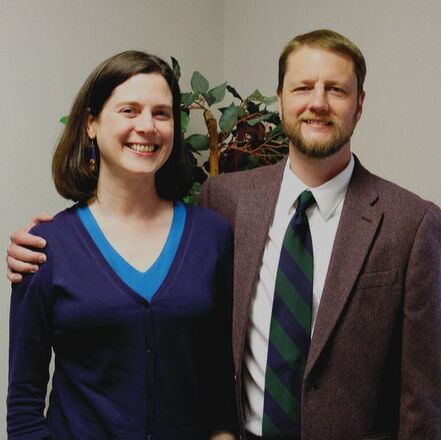We are a Gospel church
The Gospel is the good news of an event. The event is that Jesus Christ died for our sins, and that he rose again on the third day. It is good news because we are sinners, separated from God and in ourselves without any hope of rescue from God’s righteous judgment. This judgment is coming on all. But those who look to Jesus for salvation will be saved. Those who by faith are joined to Jesus Christ are justified, adopted, sanctified, and live in hope of the resurrection of the dead and glory.
We are a Baptist church
We believe that the command of the Lord Jesus is that only those who have made a credible profession of faith are to be baptized by immersion. We also believe that the membership of the church is limited to those who have experienced the new birth and have been baptized. A Baptist church is congregational, recognizing that each local congregation is independent, autonomous under the headship of Christ as opposed to being under a greater ecclesial body. We believe there are two offices in the church, elder and deacon, and are to be filled only by men.
We are a confessional, or Reformed Baptist church
The London Baptist Confession of Faith is our full doctrinal statement. Click the 1689 tab above to access it online. It is a theologically informed, Biblically grounded, and systematically organized historic statement of our convictions written in 1677 and adopted the particular Baptists in 1689.
Robert Martin has a helpful essay which explains the legitimacy and use of confessions of faith. Read it here. Another good resource is Carl Trueman's book The Credal Imperative, which makes the longer argument not just for the benefit but for the absolute need to have such a doctrinal statement.
Robert Martin has a helpful essay which explains the legitimacy and use of confessions of faith. Read it here. Another good resource is Carl Trueman's book The Credal Imperative, which makes the longer argument not just for the benefit but for the absolute need to have such a doctrinal statement.
A CONSERVATIVE CHURCH
We believe we should worship God only in ways he has explicitly appointed. Only Jesus Christ is Lord of the believer's conscience, and so only what he has commanded will be offered to him in worship, and required of his followers. This is called the Regulative Principle of Worship.
Come prepared to hear and study the Bible!
Come prepared to hear and study the Bible!
"Examine your own hearts. Do you see there any habit or custom which you know is wrong in the sight of God? If you do, don't delay for a moment in attacking it. Resolve at once to lay it aside. Nothing darkens the eyes of the mind so much, and deadens the conscience so surely, as an allowed sin. It may be a little one, but it is not any less dangerous."
J. C. Ryle (1816-1900)
J. C. Ryle (1816-1900)
